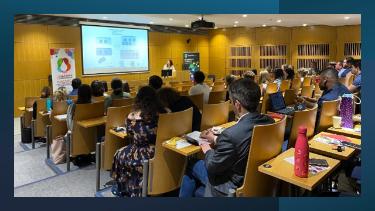Developing Predictive Models of a Complex System Without Fully Knowing Its Inner Mechanisms
Complex systems emerge from dynamic interactions of large number of entities which influence each others' activities. For instance, in living cells thousands of genes and proteins interact with each other in a space, time and context dependent manner. In the financial market, latent interactions between different financial institutions may influence the prices of financial assets. A complete blueprint of these interactions are often not available. With such incomplete knowledge, developing predictive models which can predict how these systems will behave in future or respond to shock/perturbations is not trivial.
We have recently developed a computational algorithm which attempts to solve this problem. It uses Bayesian statistics to find and quantify hidden interactions between different entities by analysing their observed behaviour. This reconstructed blueprint of interactions are then exploited to build non-linear ordinary differential equation based predictive model of the system. We implemented this algorithm to study a biological pathway which, when malfunctions, causes some of the worst forms of cancers.
The algorithm reconstructed a predictive model of the pathway using partial knowledge and experimentally observed behaviour of the pathway components. Using this model, we could predict a potentially new treatment strategy for treating a highly aggressive and drug resistant form of colon cancer. The study was published today in Science Signalling. The algorithm used in this research is our first attempt at reconstructing predictive models of complex systems by analysing observed behaviour of its components. Currently, it relies on existing partial knowledge of the system and is semi-automatic (requires manual intervention).
One of the current focuses of our research group is to develop a scalable algorithm that can reconstruct predictive models of complex systems in a fully automatic manner. This is a complex problem and we can always use a few extra brains and hands. If you are interested in our research please don't hesitate to get in touch.

